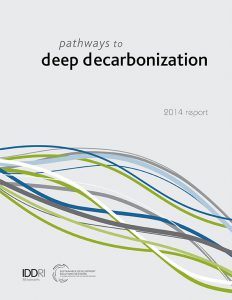Lots of talk/pixels about ‘getting back to normal,’ the ‘new normal,’ and returning to a time when things/life were somehow better because they were usual. Primarily related to the pandemic, it’s also an opportunity to unpack a sympathetic but highly questionable sentiment. So this interesting tweet, highlighted by Bloomberg, serves as a good remedy for that nostalgia for normal:
Sometimes I think about how Deepwater Horizon was a huge environmental disaster that killed 11 people and cost BP more than $65 billion — but if that oil had been captured, sold, and used, it would be worse for the environment, killed more people, and BP would have made money. pic.twitter.com/oZFevTy96r
— David Ho (@_david_ho_) January 28, 2022
Happy talk about way-back-when presents recklessness on many fronts – political, racial, economic – but it is also woebegone in terms of environmental devastation and the slow thoughtlessness that has brought us to exactly here. No one* wants to go back to Jim Crow and no one should want to go back to the normal, daily burning rates of our fossil-fueled civilization. As the article demonstrates, and this is a note to hit over and over again, the [high] costs of slowing down and reversing the effects of climate change are actually a bargain. Slice it however you want – we’ve already gotten far closer to the tipping point of better and cleaner far faster than imagined. Looking away and ignoring now requires more effort. That normal is depressing – and it should be. Our calculations of the impacts of the burning have become far less abstracted, to the point of easily transposing the impacts of the Deepwater Horizon disaster onto methane well leakage and carbon emissions just by looking at the numbers.
Unfortunately, our numbness to the staggering total of COVID deaths resembles our shruggy attitude to climate-related externalities. We get used to them, consider that state ‘normal,’ and long for the days.
But we shouldn’t, and we can’t go back, the comforting but perilous blindness of ‘normal’ notwithstanding. Instead of normal, how about a different better? As our friend says, Don’t Be Afraid.
*Admittedly, sometimes my optimism overwhelms



